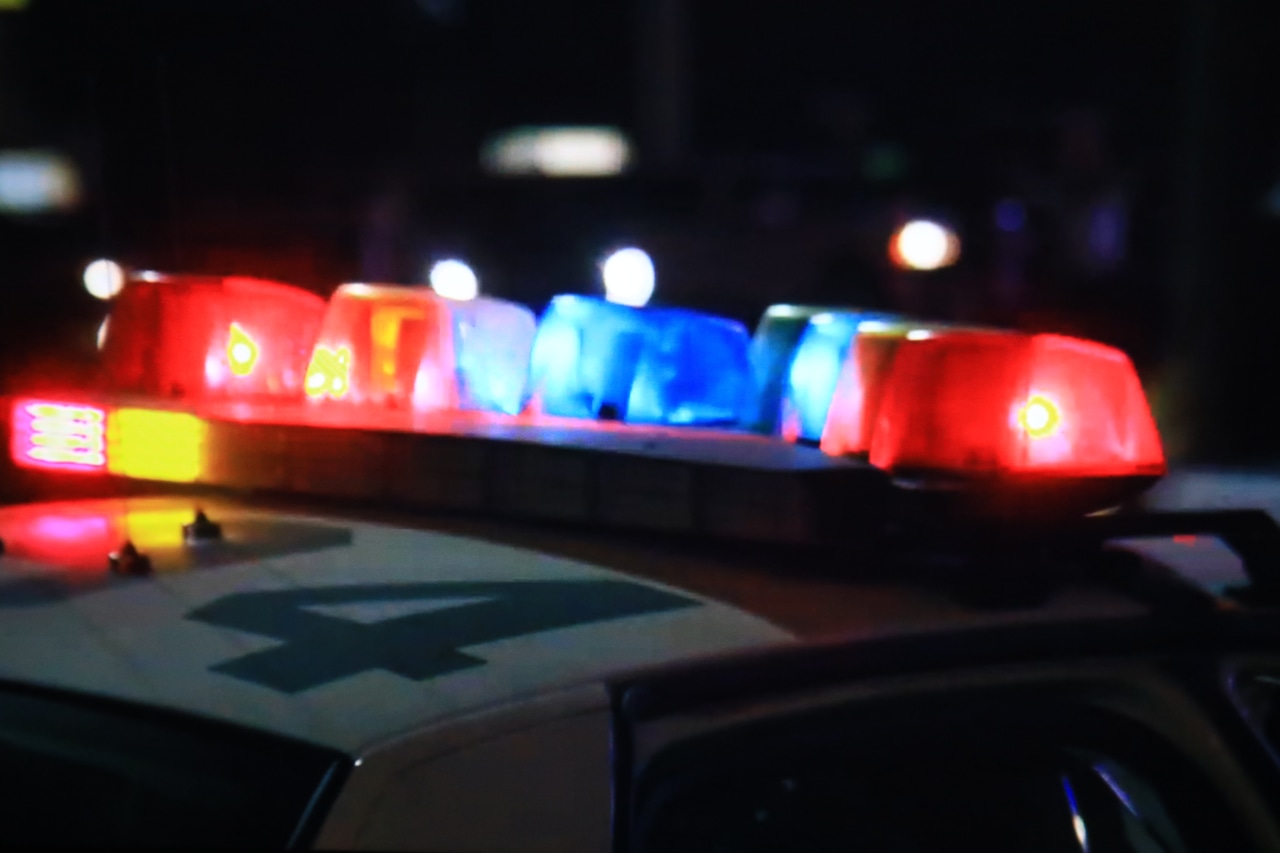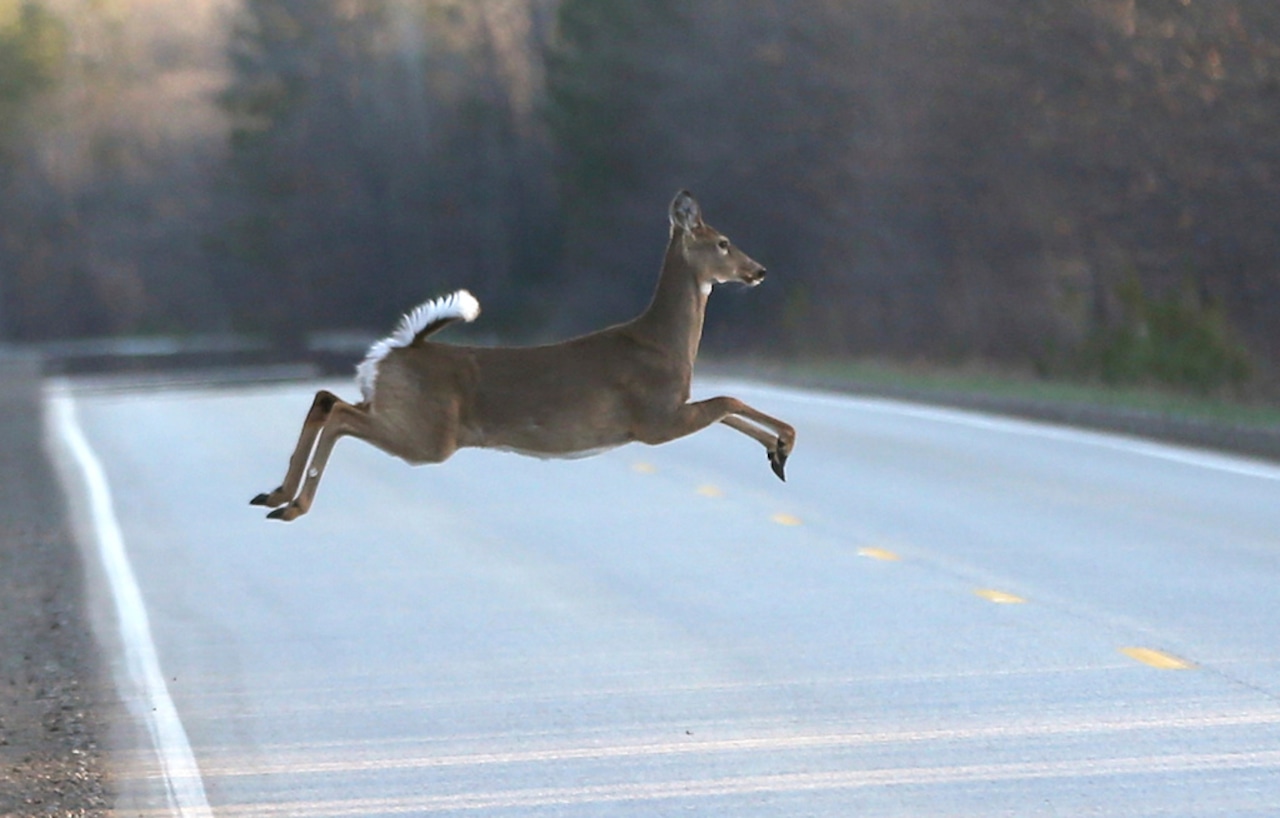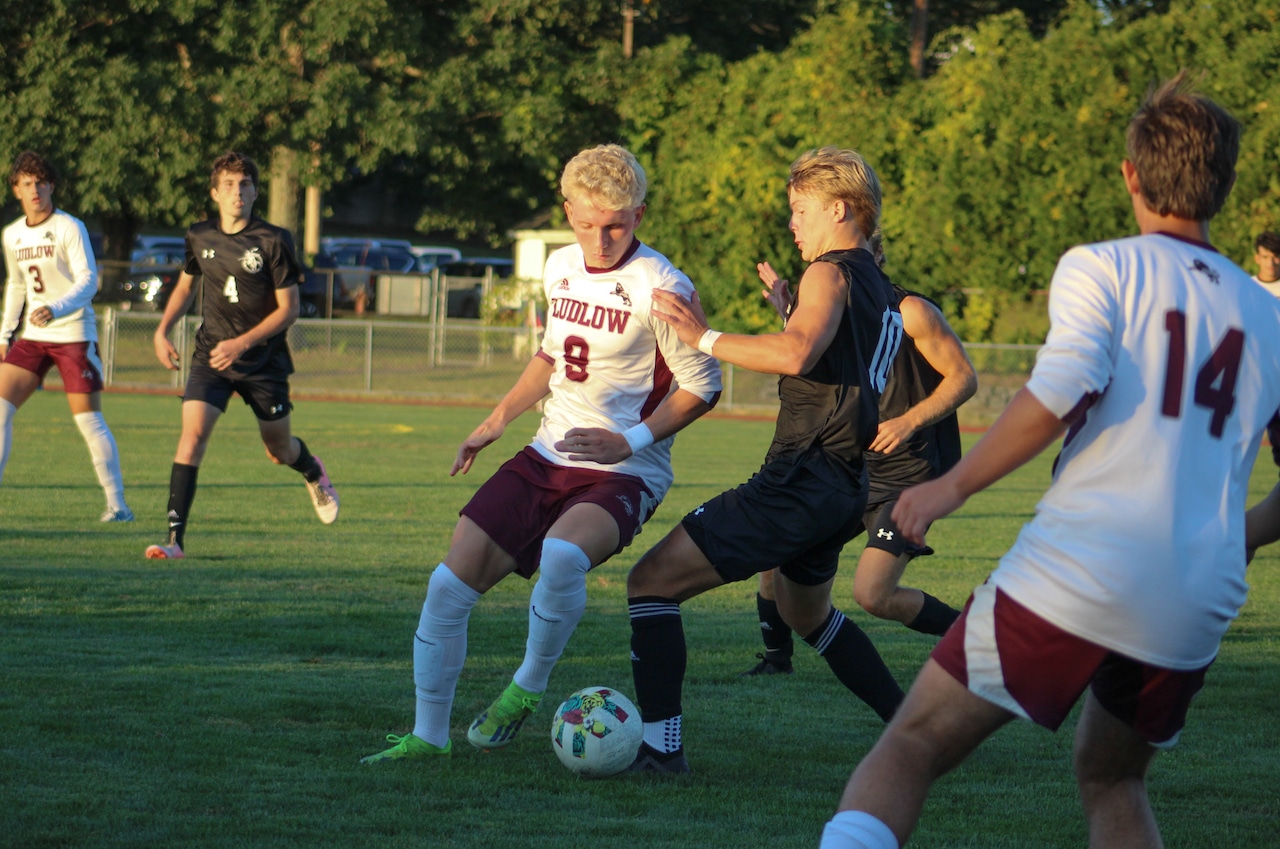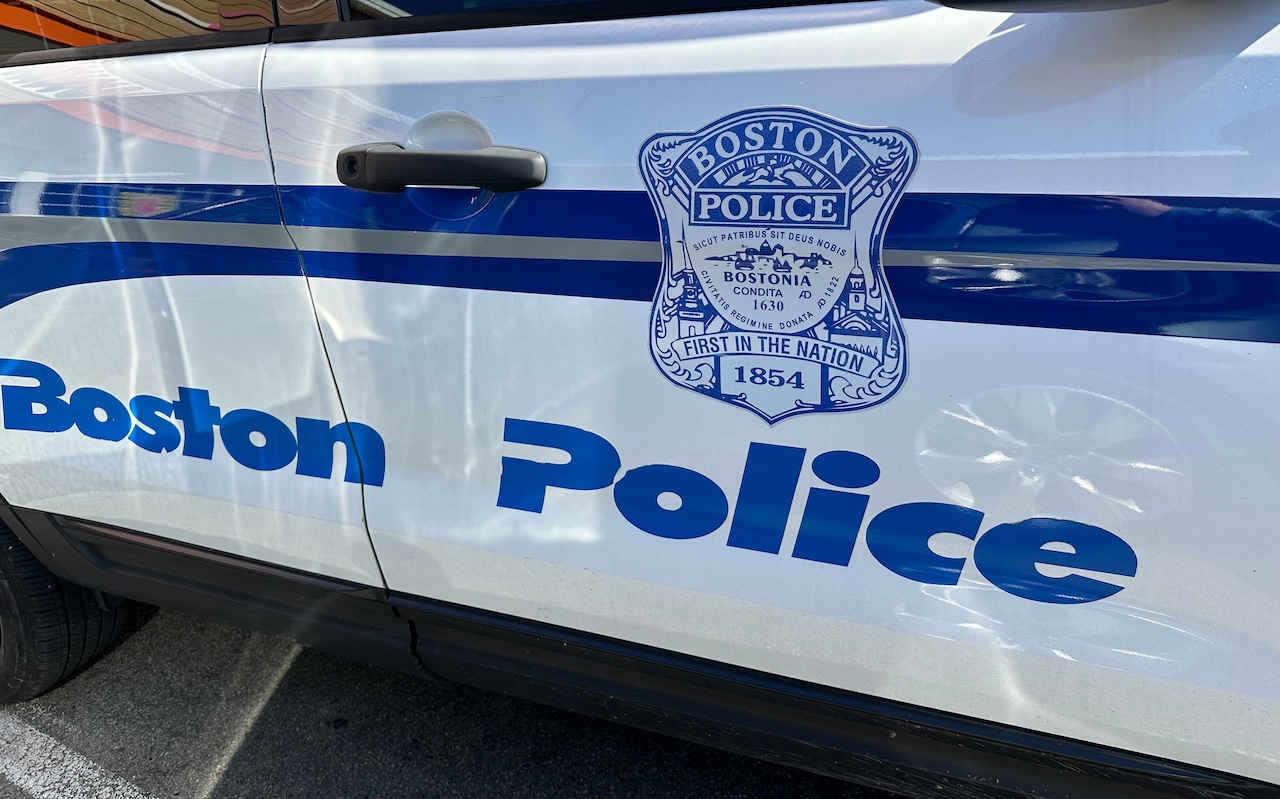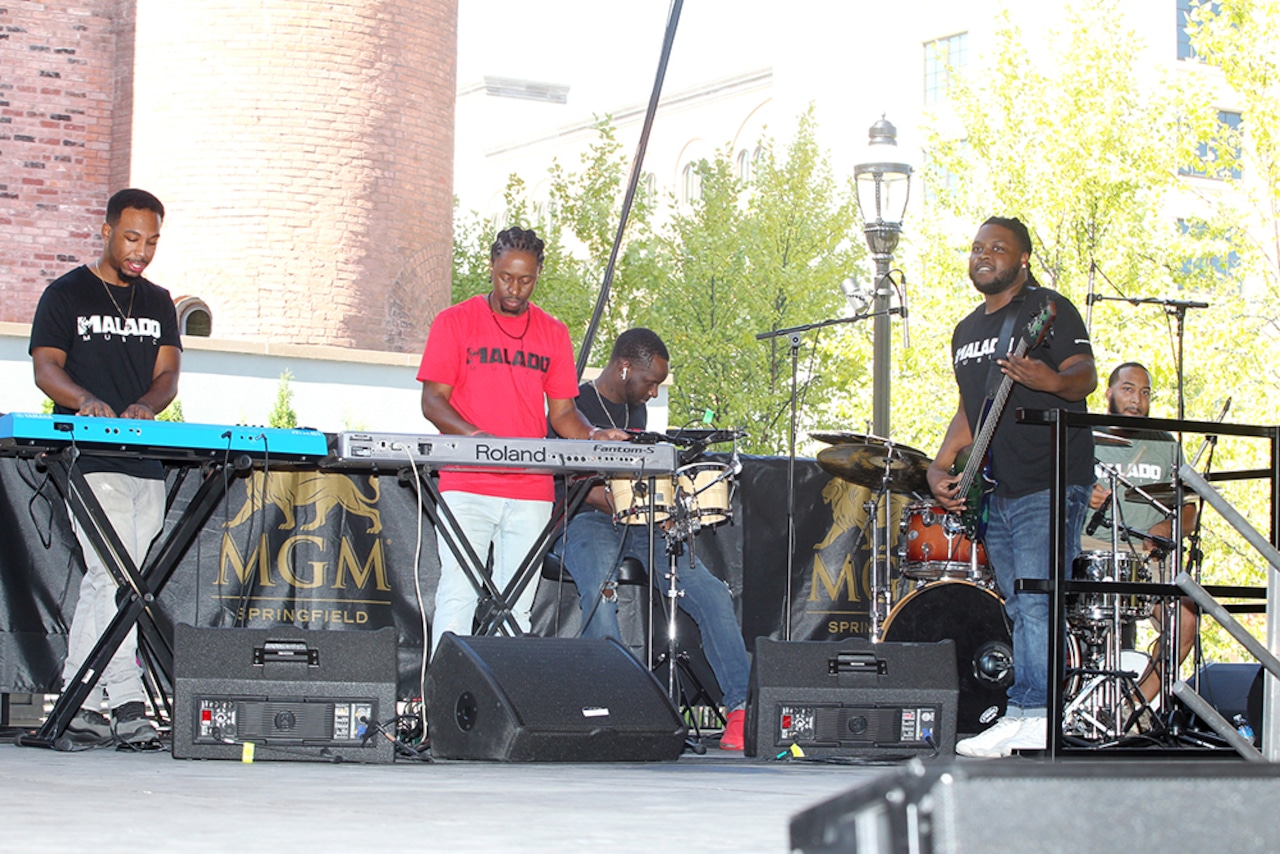
We’re a few weeks into the MGM Springfield concert series, and entering the long, hot days of summer, but the next band up on the Free Music Fridays’ roster promises to keep things fresh.
Malado, a R&B/hip-hop/funk group born out of Springfield in 2008, will perform in the plaza on Friday.
The band gained national attention when, in 2014, they placed Top 3 out of 160 bands worldwide on VH1′s 24-hour reality show, “Make A Band Famous.” Since that time, Malado has performed all over New England as well as nationally, alongside A-List artists such as Lupe Fiasco, Ludacris, Big Sean, and All Time Low.
The key to their success over the years has been “feel-good energy and feel-good music,” said the group’s cofounder, music director and drummer Gary “Skillet” Smith.
Smith will be joined on stage by band members Shamari “Shamrock” Stampp, keys and assistant music director; Shaquille Harris, bass; Gustavo Collazo, guitar; and Ru Love Williams, lead vocalist.
The show at MGM Springfield is free and open to the public.
Smith took the time to talk about Malado’s musical journey and his personal growth as an artist before Friday’s show. The following interview has been edited for length and clarity.
Q. Can you tell me a little bit about how Malado got together?
A. The band was started in 2008. I’m one of the co-founders of the band, along with a family member of mine, Joshua. Back in ‘08, Josh attended UMass, and there was an opportunity for a talent show in Worcester. He reached out to me about starting this band, and we were just blindsided. We really started it for this one-off thing and did it one time, and from there we just continued to practice as a band. From there, we started doing various Battle of the Bands, talent shows, and also appeared on VH1′s “Make A Band Famous” (in 2014).
Q. And you guys placed Top 3 on “Make A Band Famous.” Can you tell me about how you guys found out about that opportunity and what it was like being in that competition?
A. I was just scrolling on Instagram one day, and I saw the ad about submitting a video to be a part of the show. At first, I was just going to keep scrolling, because I’ve seen those types of things all the time and never got a call back, but I sent a video over. I filled out the form. I ended up receiving an email and a phone call, and we had our video audition. We went out to New York to shoot, and it was an experience. We didn’t really know what to expect because we didn’t get to watch any of the other bands go before us. We were the very first band to play when it started, and the very last band to play. It was a learning curve as we went along, learning more about ourselves, learning how to command a stage, learning the dos and don’ts of the stage. It was a great experience, and from there, we were able to do a lot of great things.
Q. And now that it’s been a decade since that experience, how do you look back on it and how it helped your group as musicians?
A. It was ups and downs. I feel like that moment showed us what we needed to work on more and showed us that we were gifted and talented to be able to be on stages not just locally, but all over the world. But it was definitely a learning curve. We learned more about ourselves as musicians and as artists.
Q. Would you say your musical style and process has evolved since that time?
A. Oh yes, because it’s not just one thing about music. It’s just like playing sports. You have to train. If you play basketball, you don’t just go in the gym and throw around a basketball all day. It’s weightlifting, it’s conditioning, working on your breathing, your pace, getting up and down the floor. So aside from us working on being musicians, we had to work on things like professionalism and togetherness, because anyone can solo on an instrument, but when you’re doing a show and performing with other people, that’s not important. One band, one sound is very important. You know, you want to provide feel-good music for your audience, so they remember the music, even when we’re doing cover tunes. You want to remember it because you identify with the identity of the song, but you also want to walk away saying, “wow, I love the way Malado played that.” It’s like a conversation. You know, you can have the same conversation with two different people, but you may receive a different delivery from one other person that touches you and makes you remember that conversation.
Q. And do you guys play a mix of originals and covers?
A. Yep. Throughout our course from 2008 to now has been a mixture of original music and cover music.
Q. The R&B and hip-hop scene is constantly evolving. How have you guys had to adapt and evolve over time to stay on top of the latest trends?
A. It’s just like anything else. We remain ourselves, but we know how to move with the times. There’s certain things that are going to age out, and it doesn’t work anymore, so you have to figure out “how can I still be myself but adapt with the times?” Even if you look at the downtown Springfield music scene, I can say we’ve been trendsetters. There’s a location downtown – Dewey’s Jazz Lounge. I see a lot of different bands coming in and out of there now, but we were one of the originals there. We had a residency every Friday. I see a lot of what we brought to the table that did influence a lot of different bands that have come after us, just like other bands did for us. You take what’s needed, and you leave what’s not needed, and you learn how to grow.
Just look at young children, you know. You don’t look at them at the age of 18 and expect what they were at the age of 5. You expect some form of growth, and not just physical growth, but growth in education and in knowledge and in other things.
So we just continue to grow. There’s been some changes with some of our band members. People have gone on to do other things, but it’s always been a “next man up” opportunity to continue to grow.
Q. Do you think personal growth is closely intertwined with music and artistic growth?
A. Yes. Even with being a band, at some point, you want to say “OK, we’ve done this, let’s challenge ourselves to do this” or “let’s do that.” Growth is what keeps it feeling new and feeling fresh. And the audience you’re performing for, they can be seeing you for the first time, but a lot of them can feel the energy of “OK, this is fresh, this is new, I love this experience.” Or when something’s stale, it’s like, “OK, we need to go back to the drawing board.” My objective is always for the crowd first. Us second, crowd first, because that’s who comes out to see us. We want to give them feel-good energy and feel-good music.
Q. And do you see a lot of energy at your shows?
A. That’s our feel, the energy. We want to provide a good performance, because that energy we get from the audience, it definitely comes back to us and in return, we’re able to kick it in gear and give them a great show. From family members and friends to even strangers, we’ve done a lot in our city and the numbers keep continuing to grow. People continue to follow us on our social media and message us like “hey, when’s the next event?” The love has definitely been tremendous. I’ve seen it grow from ‘08 to now.
Q. What can audiences expect at the MGM Springfield show?
A. They can expect feel-good energy and feel-good music. They might have seen other bands before, but they’ll definitely witness an experience that they talk about, that they share with their family members or friends. I always stress feel-good energy, feel-good music.



